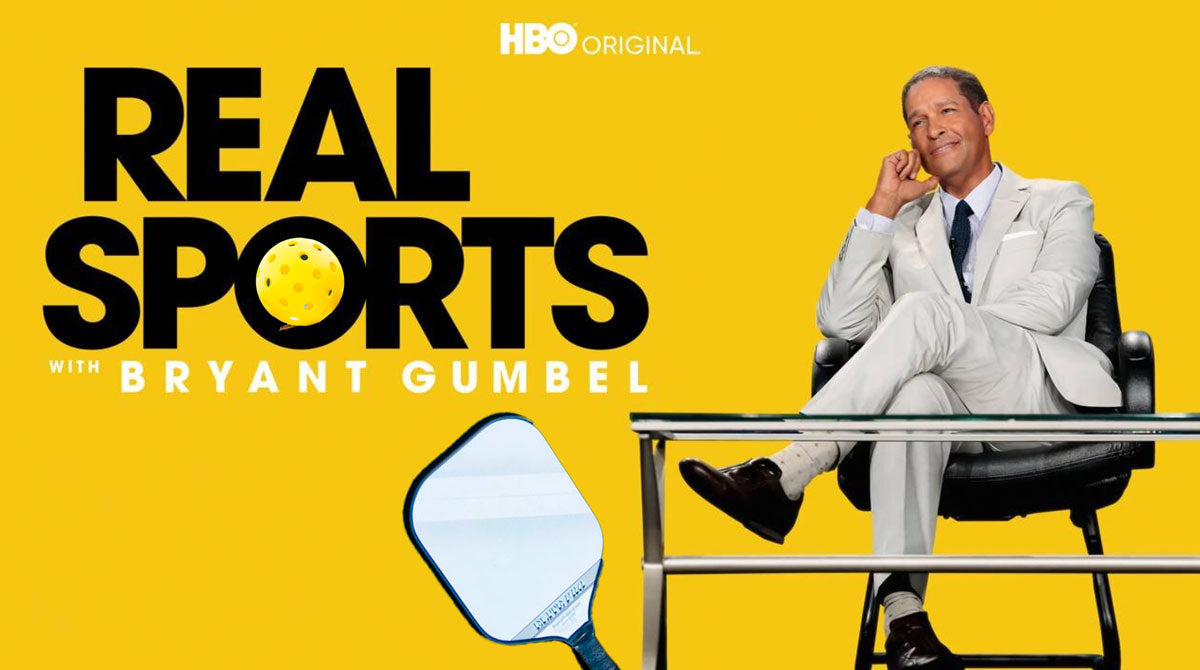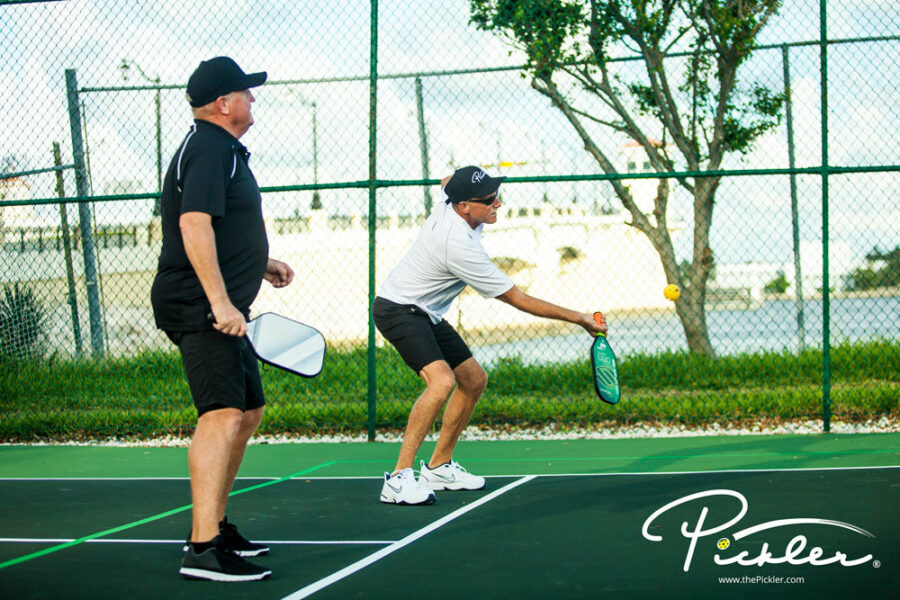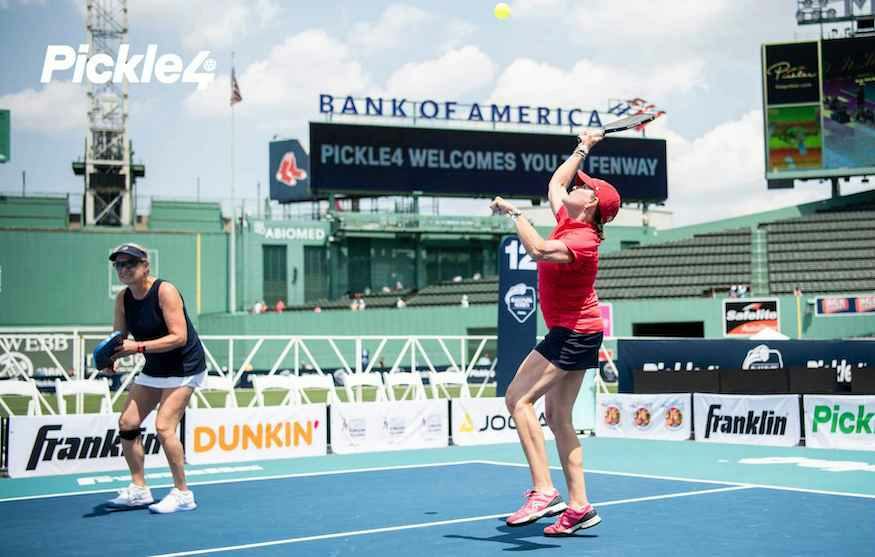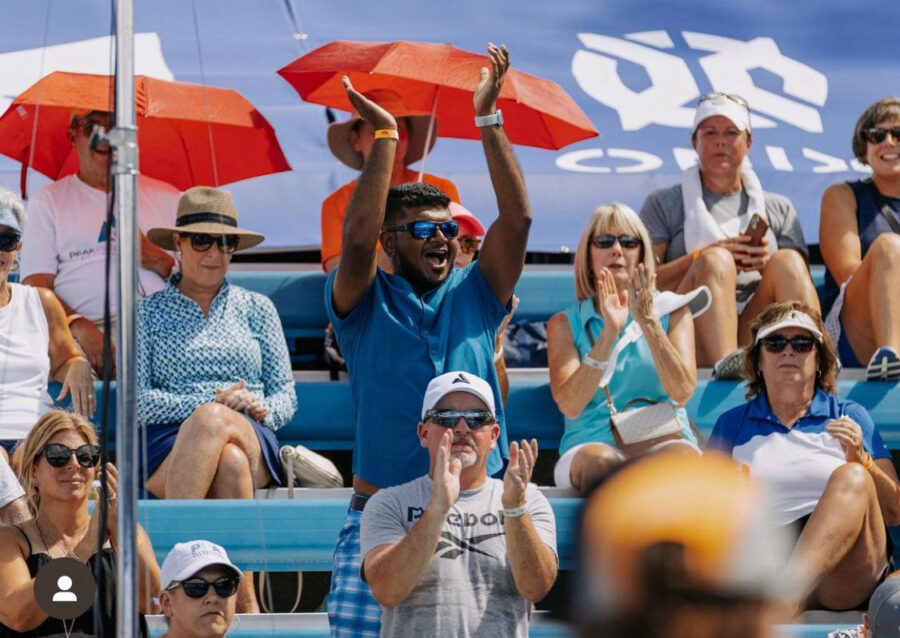There has been a lot of critical reaction from players to the 15-minute piece on pickleball that aired recently on HBO’s Real Sports with Bryant Gumbel.
The words “hatchet job” comes up a lot from the Facebook groups, which are reflexively protective of the sport and any criticism it gets from outside the tent of pickleball evangelists.
But it’s worth taking a longer, more thoughtful look at the piece, which is a product of an ever-growing fascination about pickleball from the non-pickleball-playing world. And also because Real Sports is the gold standard when it comes to TV sports journalism.
This is a show with 35 Sports Emmy Awards, including 20 for Outstanding Sports Journalism.
So, it would be foolish to dismiss how this show has processed pickleball’s growing popularity, and chosen to introduce the sport to its audience of viewers, many of whom are not players of the game.
And let’s be at least grateful that we didn’t have to watch one more national TV news show that covered pickleball’s growth by sending the show’s hosts to a makeshift street court outside their studio, where they try to learn the game from a pro in a five-minute segment full of two-hit rallies that don’t even remotely look like fun.
The Real Sports story at least had some meat on the bone. But it would be foolish to imagine that this TV news magazine show with a penchant for hard-hitting investigative stories would be content to air a 15-minute love letter to pickleball.
Especially since the segment’s reporter, Mary Carillo, is a former pro-tennis player.
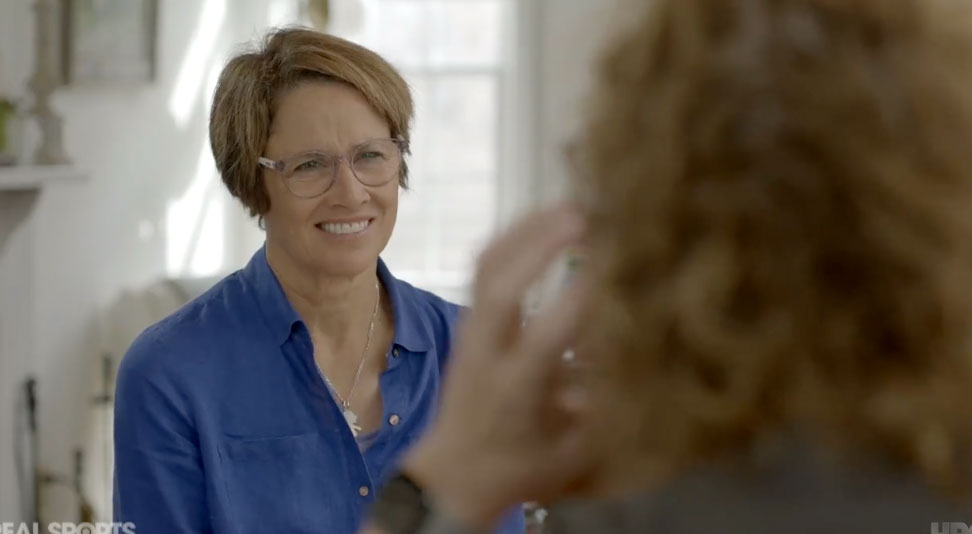
Clearly, pickleball has gotten noticed because of the growing ring of sports and entertainment celebrities who have embraced the sport, and in some cases, invested in its professional teams.
So, Real Sports, may have just been pushed into joining that line of outside journalists who are grudgingly parachuting into the sport for a closer look as to why Lebron James, Tom Brady, and Leonardo DiCaprio are some of the sport’s biggest boosters.
And how did Real Sports approach this subject?
By saying, “Pickleball is fun, but …”
As previously noted, it’s a hard-hitting investigative journalism outlet. So, there’s got to be a “but” in there someplace.
Usually, these stories take the following form: “Pickleball is fun, but you’re going to get yourself hurt if you play it.”
Real Sports sidestepped doing a piece on young retirees talking about their knee replacements and sprained wrists from backpedaling for a lob. Instead, it went for a road less taken: Imagining that pickleball’s real problem is the noise level created by composite paddles striking plastic balls.
Carillo hyperbolically calls this “plastic on plastic crime.”
In perhaps the most over-wrought moment in the piece, Carillo contends that “pickleball is dividing people all over the nation.” And while standing next to pickleball courts as she introduces the noise issue, she pretends the sound of paddle strikes in her vicinity are too loud for her to continue.
“What’s the problem with pickleball?” Carillo asks. “Critics say there are plenty. But the most obvious issue is … (she pauses as if she can’t hear herself talk) .. the most obvious issue is …”
Then she gives up, mutters an obscenity under her breath and walks away from the camera. That scores higher for theater than journalism.
When it comes to bolstering the noise complaints about pickleball, most of the heavy lifting in the piece is left to Judy Gold, a professional comedian who lives in Massachusetts near basketball courts that have been converted to pickleball.
“It’s like, whack, and it’s piercing, it’s like grrr,” Gold says. “And you’re talking on the phone and it’s like, whack, whack whack, and the problem is you can’t focus on anything but that f—ing noise.”
Pickleball is sweeping the nation. Some say the upstart sport is uniting our fragmented country. To others, the noise and havoc of the game is driving them up a wall. Learn how this simple sport is creating so much drama on this month’s #RealSports, streaming tonight on @HBOMax. pic.twitter.com/bEFATcn7a3
— Real Sports (@RealSportsHBO) October 25, 2022
But Real Sports doesn’t seem to have its heart into its own story. Gold says she has turned her pickleball proximity into a comedy bit that she performs, and other than her and a quartet of homeowners near some converted courts elsewhere in Massachusetts, there’s precious little about the alleged horrors of “plastic on plastic crime.”
The noise complaints of people who live near pickleball courts have been widely chronicled elsewhere, including here at The Pickler, in much greater detail than the Real Sports piece did. Sound mitigation for courts, “green zone approved” pickleball paddles, and quiet balls were never addressed in the piece.
And an audiologist who was hired to measure the decibel levels of pickleball as it was being played failed to be included in the aired segment, pickleballers familiar with the news gathering of the story have claimed.
Instead, the piece made the novel claim that beyond the sound of paddles and balls, pickleball players themselves are generators of intolerable noise.
After preposterously calling the noise from tennis courts “quieter than a library after closing time,” the piece shows pickleball players shouting in celebration of winning a rally – as if that’s a particular quirk to just pickleball.
“There goes the neighborhood,” Carillo says in narration to pickleball players celebrating.
That’s some thin gruel. And not something that can be sustained through the whole piece.
Making noise the centerpiece of its story peters out in the middle of the piece. Maybe, it would have needed a second comedian or more reporting to fill the allotted time. Or maybe the architects of this story just sensed the flimsiness of its thesis, and bailed out, mid-story, to focus on something more pressing.
So, by the 10-minute mark, the focus has already moved on, and this is where the story takes a dark turn.
It accuses pickleballers of being on a military-like campaign to acquire territory from other sports.
That noise you now hear are the jackbooted Medicare-aged thugs marching to take away your playground.
“With more and more Americans playing, picklers are on a land grab, taking over park space everywhere, meant for other activities,” Carillo narrates. “In New York City, they even took over a playground used by local kids, infuriating the neighborhood.”
And then we hear an ominous warning from a tennis player in Arizona:
“They’ll be coming for every inch of park space, whether it’s basketball, sand volleyball, shuffleboard. I mean, those guys are coming for everything,” he says. “People need to understand what’s going on. The wake of damage is going to be terrible.”
(First they came for the shuffleboarders, and I said nothing. Then they came for the …)
This is war-zone styled reporting. And it segues to captured territory. In this case, it’s a tennis facility in Newport Beach, California, which has been converted to 47 pickleball courts to meet the demand for courts.
“And that hurts, that really really hurts. But that’s the direction it’s going,” says the tennis-loving owner of the facility.
To put this in focus: The court owner is not being forced by edict to convert his tennis courts to pickleball courts. He’s doing it on his own as a business decision that allows him to make more money.
Oh, the horror.
There are some moments in the piece where pickleballers are given the chance to profess their love for the sport.
One unidentified pickleballer says the game has changed her life: “It was black and white before pickleball and it was in living color after pickleball.”
Major League Pickleball founder Steve Kuhn talks about the sport growing to 40 million players by the end of the decade. And why that’s a good thing.
“I think pickleball will save America, and I think America, sadly, feels like it needs saving right now,” Kuhn said. “It’s bringing people together that otherwise would not be meeting each other.”
But the thesis of the piece makes the opposite argument. That pickleball is a sport that puts people at war with each other. On one side, you have the pickleball cult followers, and on the other you have the people who are trying to preserve peace, quiet and tennis.
“The movement will not be stopped, and your town is next,” Carillo says as her closing line. “The question is, whose side are you on?”
Holy hell. Get me rewrite.

